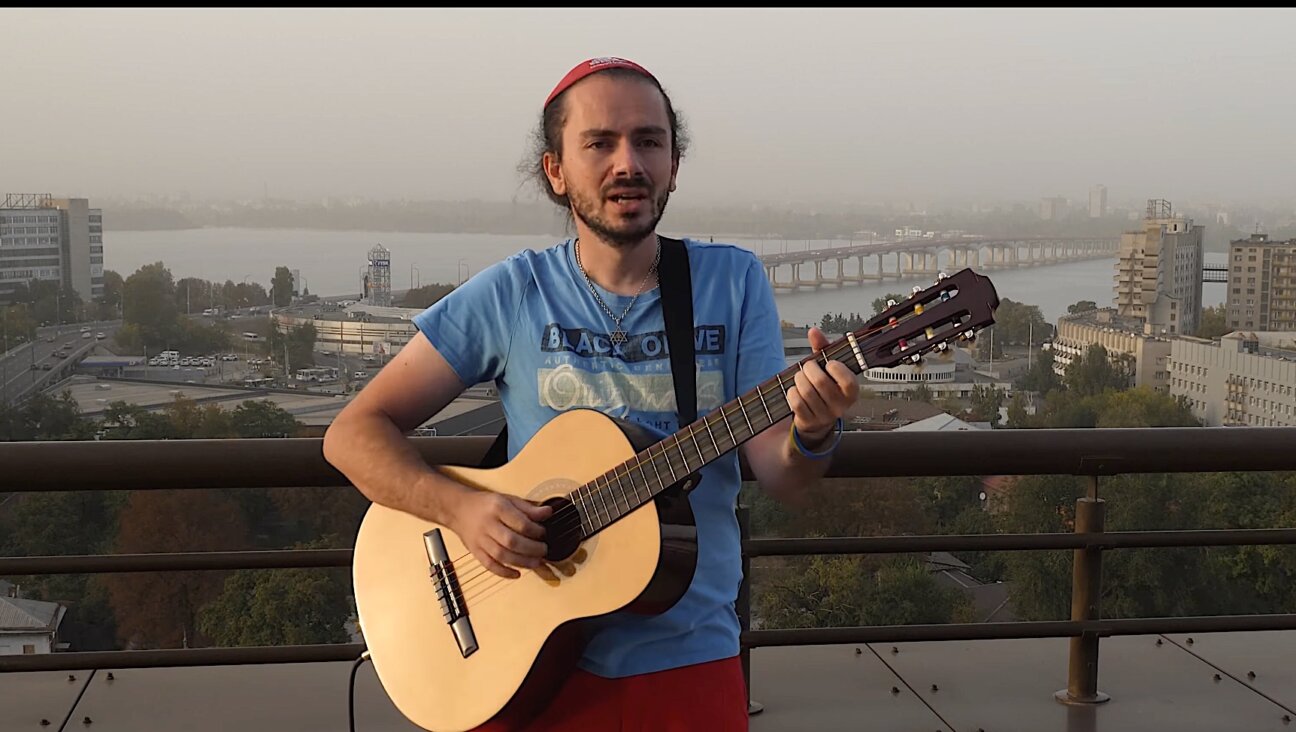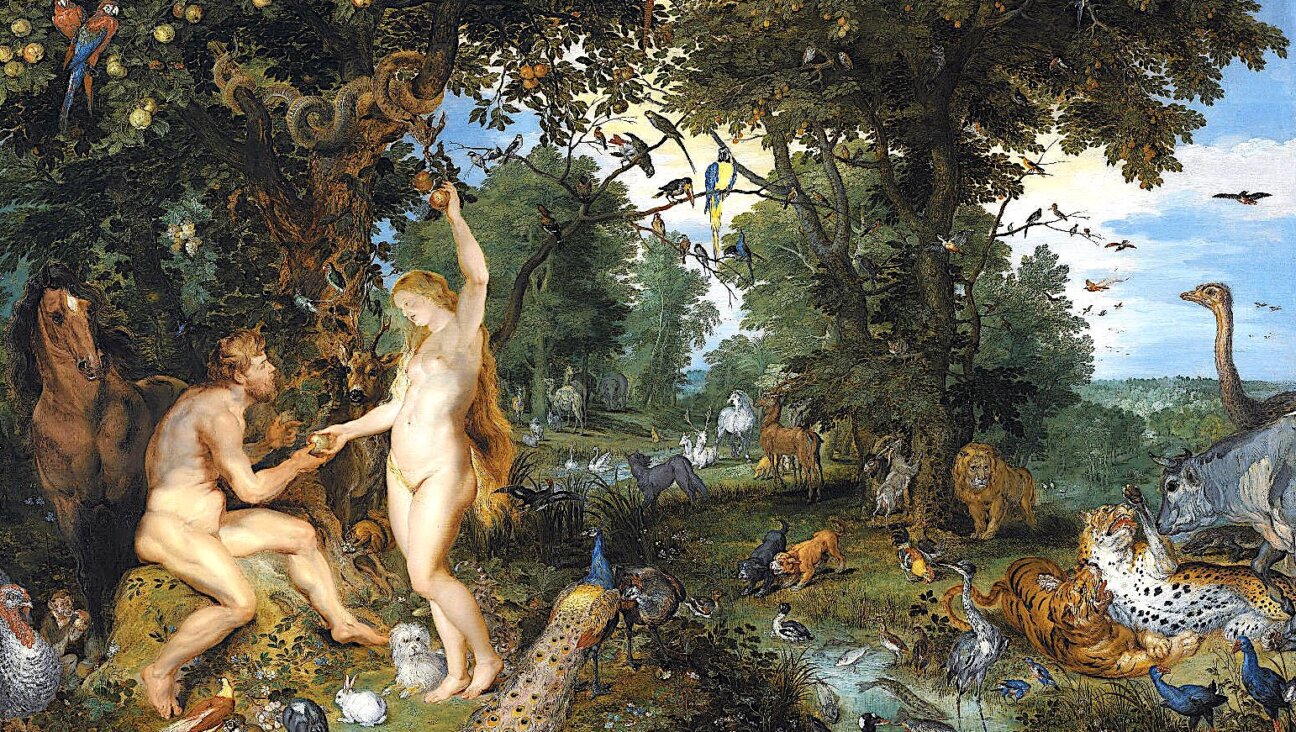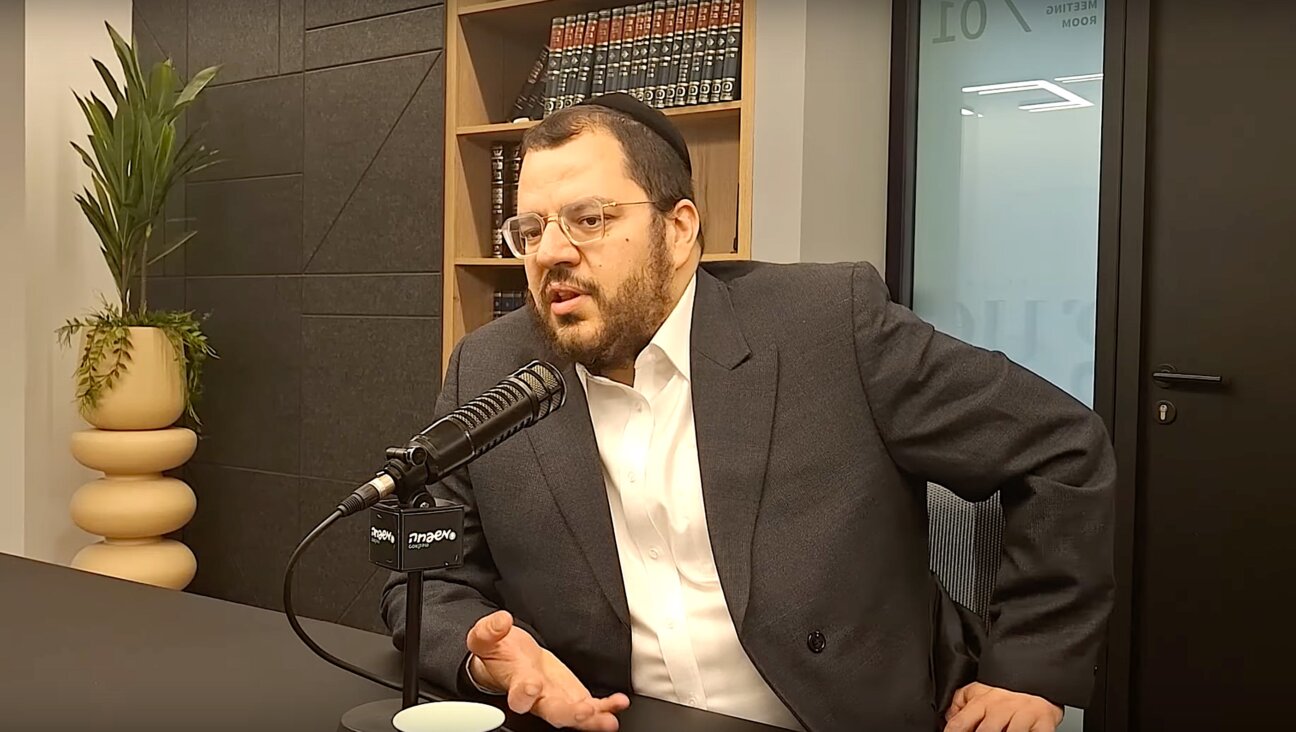„ייִוואָ‟־זומער־רעפֿעראַטן אויף ייִדיש קען מען איצט זען „אָנלײַן‟YIVO Summer Lecture Series in Yiddish Now Online
צווישן די טעמעס: די השפּעה פֿון די ייִדיש־רעדערס אויף ניו־יאָרק און די ראָלע פֿון פֿרויען אין שאַפֿן די ייִדישע ליטעראַטור פֿון מיטל־עלטער.

Image by Forverts Collage
דעם זומער איז בײַם ניו־יאָרקער „ייִוואָ‟ פֿאָרגעקומען אַ סעריע רעפֿעראַטן אויף מאַמע־לשון אין צוזאַמענהאַנג מיט דער זומער־פּראָגראַם אין ייִדישער שפּראַך און קולטור. כּדי די זומער־פּראָגראַם־סטודענטן זאָלן קענען קומען אויף די רעפֿעראַטן, האָט מען זיי געהאַלטן נאָכמיטאָג. עטלעכע „פֿאָרווערטס‟־לייענער האָבן זיך באַקלאָגט, מחמת זיי אַרבעטן במשך פֿונעם טאָג און האָבן ניט געקענט הערן די רעפֿעראַטן.
לכּבֿוד די וועלכע האָבן פֿאַרפֿעלט די לעקציעס, האָט דער „ייִוואָ‟ לעצטנס אַרויפֿגעשטעלט די גאַנצע סעריע רעפֿעראַטן אויף „יוטוב‟, אַלע זאָלן קענען געניסן דערפֿון. אָט זענען קורצע באַשרײַבונגען פֿון די רעפֿעראַטן, צוזאַמען מיט די פֿאַרבינדונגען צו די ווידעאָס:
ד׳׳ר יודזשין אָרנשטיין גיט אַן איבערזיכט פֿון דער אַנטוויקלונג פֿון דער ייִדישער קולטור פֿון יאָר 1272 ביזן 20סטן יאָרהונדערט. צווישן אַנדערע טעמעס באַשרײַבט ער די ראָלע פֿון פֿרויען בײַם שאַפֿן די ייִדישע ליטעראַטור פֿון מיטל־עלטער, די השפּעה פֿון דער השׂכּלה אויף דער אַנטוויקלונג פֿון דער מאָנדערנער ייִדישער ליטעראַטור און די ראָלע פֿון דער ייִדישער פּרעסע בײַם שאַפֿן די ייִדישע קולטור.
ד׳׳ר איציק גאָטעסמאַן רעדט וועגן דעם אַשכּנזישן פֿאָלקלאָר און דעם אופֿן ווי אַזוי ער שיידט זיך אונטער פֿון דער פֿאָלקלאָר־טראַדיציע בײַ אַנדערע פֿעלקער. אינעם רעפֿעראַט דערקלערט ער אויך ווי אַזוי די ייִדישע פֿאָלקלאָריסטן אין פּוילן און אַמעריקע האָבן געזאַמלט זייער מאַטעריאַל.
ד׳׳ר דניאל סויער רעדט וועגן דער השפּעה פֿון ניו־יאָרק אויף דער ייִדישער ליטעראַטור און וועגן דער ווירקונג פֿון די ייִדיש־רעדנדיקע ייִדן אויף דער שטאָט.
ד׳׳ר דוד בראַון רעדט וועגן דער ייִדישער דיאַלעקטאָלאָגיע און דערקלערט וועגן פֿאַרשידענע טערמינען, וואָס מענטשן באַנוצן צו די כּלערליי וואַריאַנטן פֿון ייִדיש, אַרײַנגערעכנט: „פּאָטייטאָ־ייִדיש‟, „דײַטשמעריש‟, סאָוועטיש־ייִדיש, חסידיש־ייִדיש, גאַליציאַנער/פּויליש־ייִדיש, ליטוויש־ייִדיש, „כּלל־ייִדיש‟ און „ייִוואָ־ייִדיש‟.
A message from our CEO & publisher Rachel Fishman Feddersen

I hope you appreciated this article. Before you go, I’d like to ask you to please support the Forward’s award-winning, nonprofit journalism during this critical time.
At a time when other newsrooms are closing or cutting back, the Forward has removed its paywall and invested additional resources to report on the ground from Israel and around the U.S. on the impact of the war, rising antisemitism and polarized discourse.
Readers like you make it all possible. Support our work by becoming a Forward Member and connect with our journalism and your community.
— Rachel Fishman Feddersen, Publisher and CEO























